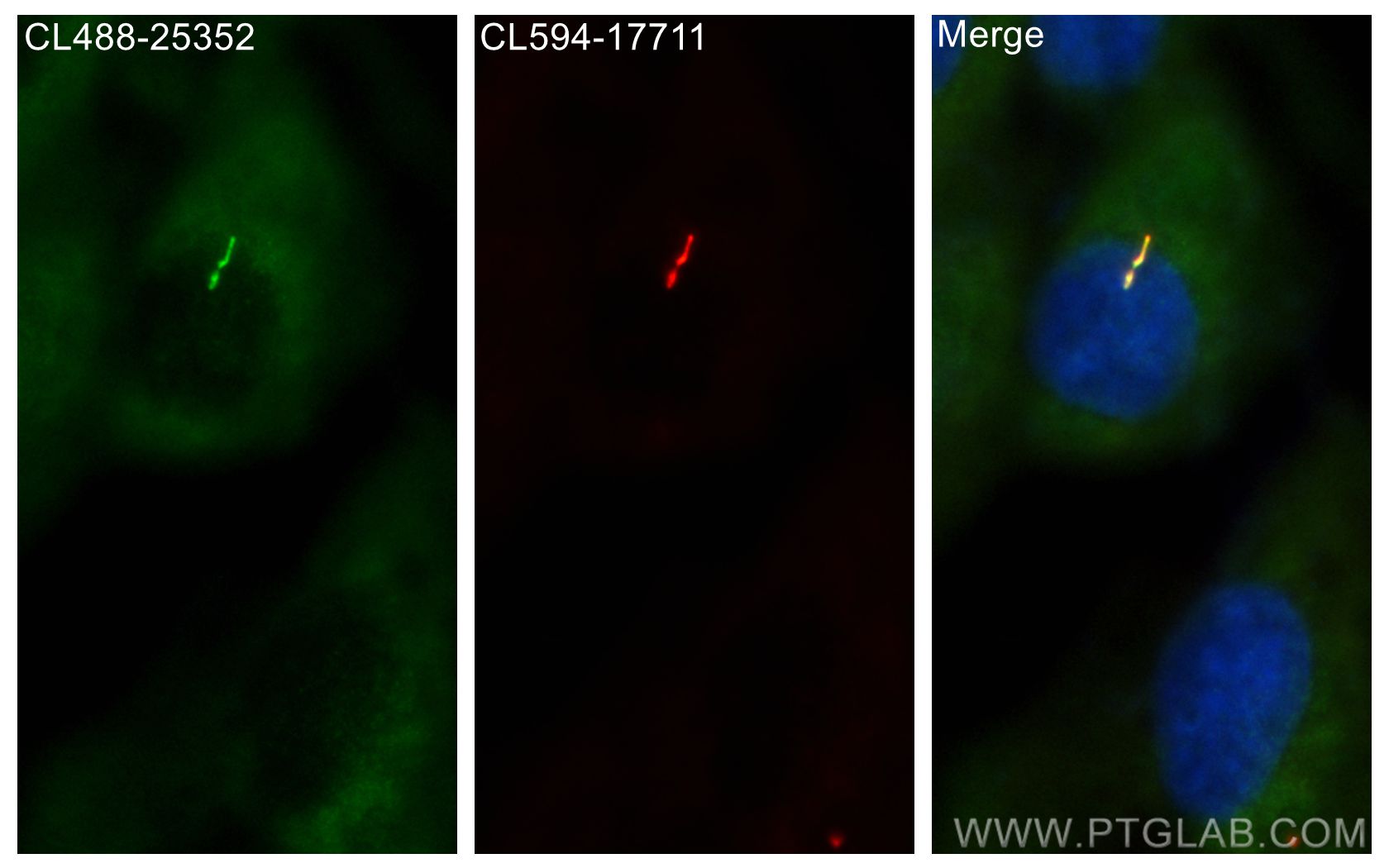验证数据展示
经过测试的应用
| Positive IF/ICC detected in | hTERT-RPE1 cells |
推荐稀释比
| 应用 | 推荐稀释比 |
|---|---|
| Immunofluorescence (IF)/ICC | IF/ICC : 1:50-1:500 |
| It is recommended that this reagent should be titrated in each testing system to obtain optimal results. | |
| Sample-dependent, Check data in validation data gallery. | |
产品信息
CL488-25352 targets TTC30A in IF/ICC applications and shows reactivity with human, mouse, rat samples.
| 经测试应用 | IF/ICC Application Description |
| 经测试反应性 | human, mouse, rat |
| 免疫原 |
CatNo: Ag18361 Product name: Recombinant human TTC30A protein Source: e coli.-derived, PET28a Tag: 6*His Domain: 1-342 aa of BC042848 Sequence: MAGLSGAQIPDGEFTALVYRLIRDARYAEAVQLLGRELQRSPRSRAGLSLLGYCYYRLQEFALAAECYEQLGQLHPELEQYRLYQAQALYKACLYPEATRVAFLLLDNPAYHSRVLRLQAAIKYSEGDLPGSRSLVEQLLSGEGGEESGGDNETDGQVNLGCLLYKEGQYEAACSKFSATLQASGYQPDLSYNLALAYYSSRQYASALKHIAEIIERGIRQHPELGVGMTTEGFDVRSVGNTLVLHQTALVEAFNLKAAIEYQLRNYEVAQETLTDMPPRAEEELDPVTLHNQALMNMDARPTEGFEKLQFLLQQNPFPPETFGNLLLLYCKYEYFDLAADV 种属同源性预测 |
| 宿主/亚型 | Rabbit / IgG |
| 抗体类别 | Polyclonal |
| 产品类型 | Antibody |
| 全称 | tetratricopeptide repeat domain 30A |
| 别名 | IFT70, TPR repeat protein 30A, TTC30A |
| 计算分子量 | 665 aa, 76 kDa |
| 观测分子量 | 72-76 kDa |
| GenBank蛋白编号 | BC042848 |
| 基因名称 | TTC30A |
| Gene ID (NCBI) | 92104 |
| RRID | AB_3672792 |
| 偶联类型 | CoraLite® Plus 488 Fluorescent Dye |
| 最大激发/发射波长 | 493 nm / 522 nm |
| 形式 | Liquid |
| 纯化方式 | Antigen affinity purification |
| UNIPROT ID | Q86WT1 |
| 储存缓冲液 | PBS with 50% glycerol, 0.05% Proclin300, 0.5% BSA, pH 7.3. |
| 储存条件 | Store at -20°C. Avoid exposure to light. Stable for one year after shipment. Aliquoting is unnecessary for -20oC storage. |
背景介绍
Tetratricopeptide repeat protein 30A (TTC30A) as a component of ciliary segmentation, may be essential for cartilage differentiation and renal tubulogenesis (PMID: 34548398). It is required for polyglutamylation of axonemal tubulin and plays a role in anterograde intraflagellar transport (IFT), the process by which cilia precursors are transported from the base of the cilium to the site of their incorporation at the tip.
实验方案
| Product Specific Protocols | |
|---|---|
| IF protocol for CL Plus 488 TTC30A antibody CL488-25352 | Download protocol |
| Standard Protocols | |
|---|---|
| Click here to view our Standard Protocols |


